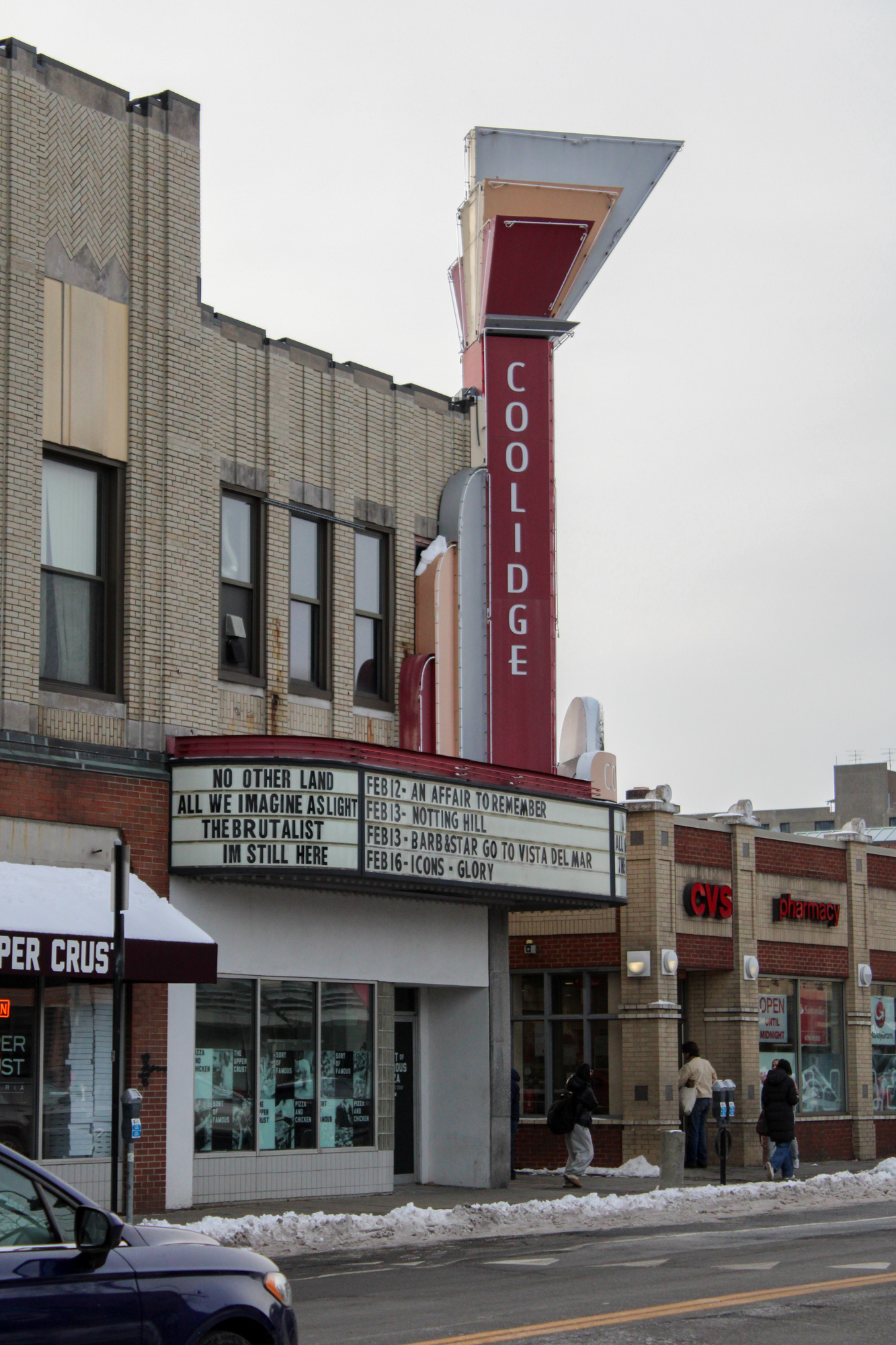The documentary “No Other Land” remains without a U.S. distributor or streaming platform — making its screening at Coolidge Corner Theatre a rare opportunity for American audiences.
The film, screening from Feb. 10-20 at the theater, documents the systematic destruction of Masafer Yatta, a group of Palestinian villages in the southern West Bank, by the Israeli military.
The film was created by a Palestinian-Israeli collective of four directors — Basel Adra, Hamdan Ballal, Yuval Abraham and Rachel Szor — and is part of the theater’s Panorama series, “a film and discussion series designed to increase the scope of awareness, empathy and humility,” according to the theater’s website.
Despite the film’s international critical acclaim and Oscar nomination, no U.S. distributor or streaming service picked up the film, making it unavailable for streaming in the country.

The Coolidge Corner Theatre is an exception.
Billy Thegenus, the theater’s programming and outreach coordinator, said the theater aims to screen films that spark conversation — rather than just focusing on people’s enjoyment.
“The movies that we showcase under Panorama are specifically tailored to engage in conversation, whether those conversations are controversial or not,” Thegenus said. “There should be a space to be able to showcase movies that not everybody’s going to see eye to eye on.”
A post-film discussion moderated by Boston Palestine Film Festival Programming Director Michael Maria took place Feb. 7.
Maria said films and panels like these give Palestinians a chance to “present their story directly.”
“There’s many others that are willing to speak on their behalf,” Maria said. “The U.S. government or Israeli leadership will make decisions for them, and we hear that, for example, in these plans with Gaza right now.”
Maria said President Donald Trump is planning to build a Riviera in the Middle East without Palestinians being consulted.
“[Palestinians are] not given the opportunity for their own self determination in terms of what they want to see be done with the rebuilding of Gaza,” he said. “It’s the same in terms of cinema and art and theater. We want Palestinians to be able to express themselves artistically and to present their own stories themselves.”
Michal Goldman, an 80-year-old documentary filmmaker from the Boston area, saw the film this week.
“This is an important film to talk about,” Goldman said. “If people see this in the theater, then they can see it with other people, and you can feel how other people are feeling around you.”
Goldman also said “No Other Land” offers Americans insight into the struggles of Masafer Yatta residents in the West Bank.
“I’m a Jew, and I think most American Jews are going to be against this film,” Goldman said. “It’s extremely important that Americans, all of us, Jews [and] non-Jews, get access to information which is often suppressed.”
Thegenus said the filmmakers have personal stakes behind these projects.
“These filmmakers aren’t sitting in an office somewhere waiting to see how well their movie is doing and potentially seeing if it gets an Oscar,” Thegenus said. “Their lives are very much still on the line.”
Thegenus also said he has hope for this film’s success.
“My hope is that the movie does find a proper home and does get the wide support that it deserves,” he said.
Maria said it that while its not rare for Israelis and Palestinians to collaborate like this, “No Other Land” is a particularly good example of how important this collaboration is.
“One group’s security can’t come at the expense of the other, and this film shows that in action,” Maria said. “It’s really beautiful.”
There is collaboration in the production of the film, as well as the rebellious efforts depicted in the film, he said.
“It doesn’t matter who you are,” Maria said. “It’s a matter of being grounded in shared values and shared morality, in terms of Palestinians and Israelis having shared security and shared freedom and shared liberation.”
























































































































